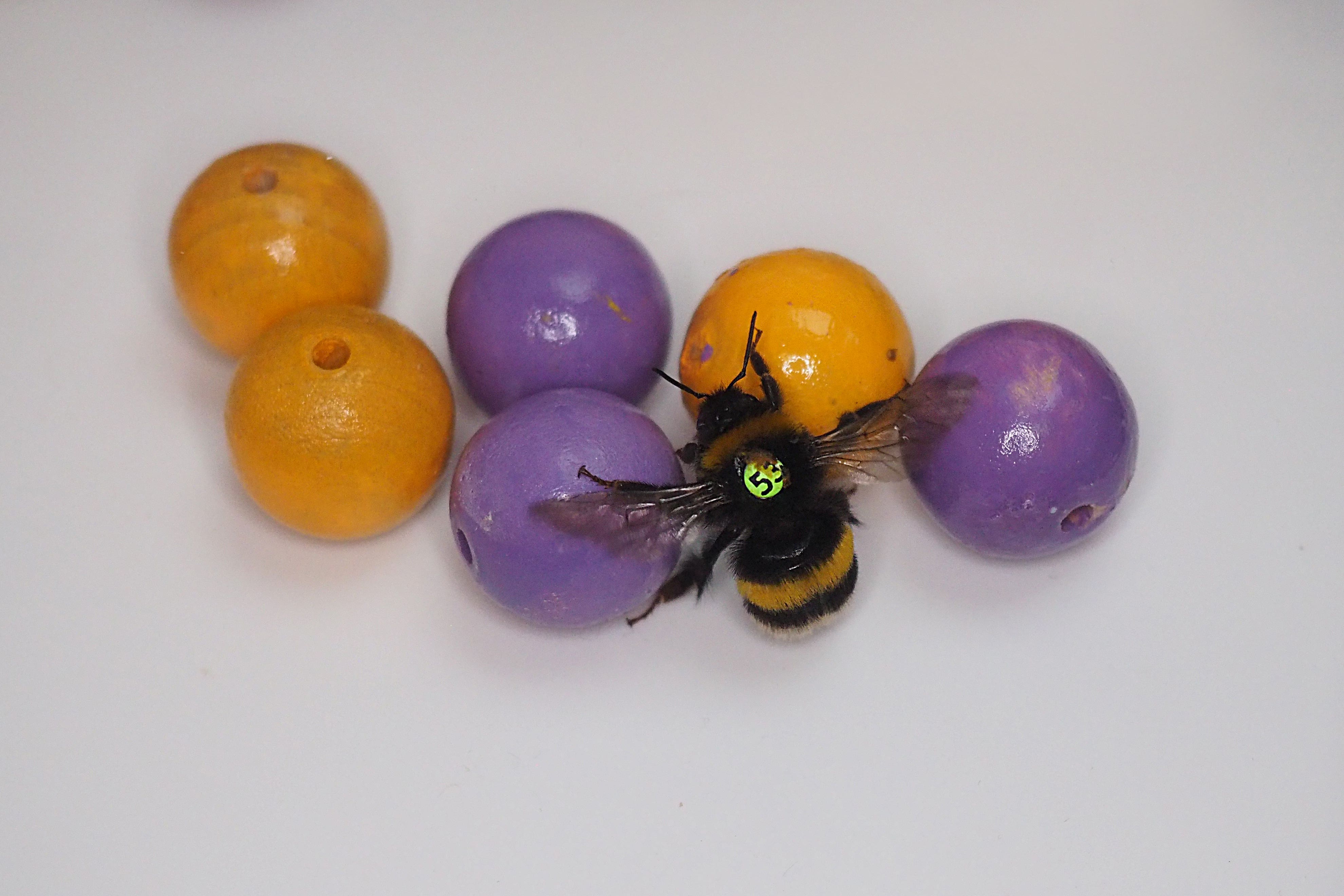Bumble bees ‘play with balls for enjoyment’
Findings add to growing evidence that bees’ minds are much more complex than previously imagined, scientists said.

Your support helps us to tell the story
From reproductive rights to climate change to Big Tech, The Independent is on the ground when the story is developing. Whether it's investigating the financials of Elon Musk's pro-Trump PAC or producing our latest documentary, 'The A Word', which shines a light on the American women fighting for reproductive rights, we know how important it is to parse out the facts from the messaging.
At such a critical moment in US history, we need reporters on the ground. Your donation allows us to keep sending journalists to speak to both sides of the story.
The Independent is trusted by Americans across the entire political spectrum. And unlike many other quality news outlets, we choose not to lock Americans out of our reporting and analysis with paywalls. We believe quality journalism should be available to everyone, paid for by those who can afford it.
Your support makes all the difference.Bumble bees – just like humans and dogs – like to play with balls, UK scientists have found.
Researchers have, for the first time, observed insects interacting with inanimate objects as a form of play.
The team said its findings, published in the journal Animal Behaviour, add to growing evidence that bees’ minds are much more complex than previously imagined.
Lars Chittka, professor of sensory and behavioural ecology at Queen Mary University of London, and author of the recent book The Mind Of A Bee, said: “This research provides a strong indication that insect minds are far more sophisticated than we might imagine.
It is certainly mind-blowing, at times amusing, to watch bumble bees show something like play
“There are lots of animals who play just for the purposes of enjoyment, but most examples come from young mammals and birds.
“We are producing ever-increasing amounts of evidence backing up the need to do all we can to protect insects that are a million miles from the mindless, unfeeling creatures they are traditionally believed to be.”
Prof Chittka and his team designed a series of experiments where bumble bees had to roll wooden balls.
They found the insects showed their playful side by repeatedly rolling the balls – despite no apparent incentive to do so.
Younger bees were found to roll more balls than older bees, while adult males rolled for longer than their female counterparts.
The researchers designed an experimental arena where 45 bumble bees were given the option of either walking through an unobstructed path to get a treat or going into the areas with wooden balls.
According to the researchers, individual bees rolled balls between one and 117 times over the course of the experiment.
The repeated behaviour suggested that ball-rolling was rewarding, the team said.
In further tests, another 42 bees were given access to two coloured chambers, with one chamber containing wooden balls.
Later when the balls were removed, the bees showed a preference for the colour of the chamber previously associated with the balls.
This removed any notion that the bees were moving the balls for any greater purpose other than play, the experts added.
The scientists wrote in the paper: “We found that ball rolling did not contribute to immediate survival strategies, was intrinsically rewarding, differed from functional behaviour in form, was repeated but not stereotyped, and was initiated under stress-free conditions.”
Samadi Galpayage, a PhD student at Queen Mary University of London, and first author on the study, said: “It is certainly mind-blowing, at times amusing, to watch bumble bees show something like play.
“They approach and manipulate these ‘toys’ again and again.
“It goes to show, once more, that despite their little size and tiny brains, they are more than small robotic beings.”
The latest study builds on previous research by Prof Chittka, which showed that bumble bees can be taught to score a goal in exchange for a sugary food reward.